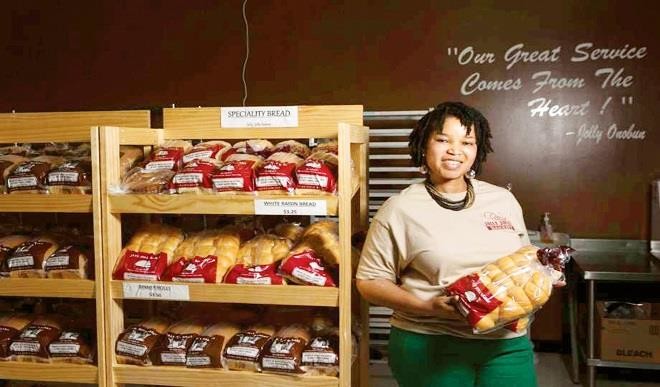Bakers groan over high cost of doing business
Mrs Bakare Adebayo, the CEO of Bread and More has been in the bakery business for eight years. With about five outlets selling bread in Abuja and over a 100 staff she says in the last ten months, the business is just trying to survive. “The cost of bakery items has increased by 33%. This […]


Mrs Bakare Adebayo, the CEO of Bread and More has been in the bakery business for eight years. With about five outlets selling bread in Abuja and over a 100 staff she says in the last ten months, the business is just trying to survive.
“The cost of bakery items has increased by 33%. This is because of the escalating prices of raw materials in bakery. In the last 10 months, we have changed to survival strategy. To keep every cost at bay and keep our good hands. When the economy gets better, then we can start talking about making profit. We will be deceiving ourselves if we are expecting a massive profit now. We are just trying our best to survive, “she explains.
Mr Godwin Jeremiah is the manager of Fredbar bakery Limited, Mararaba. His story is similar to that of Adebayo.
“We are producing bread and pure water at the same time but the high price of raw materials is affecting us greatly. Before now, we buy a bag of flour for 7,200 now it is 10,800. The Golden Penny brand is about 11,500. The problem is that most of the products we are using for bakery are not manufactured in Nigeria, like yeast, wheat and other things. Meanwhile, we cannot increase the price of the bread just like that,” he said.
Managing Director, Honeywell Flour, Mr. Lanre Jaiyeola said in a newspaper report recently that wheat has been badly affected by the depreciating naira and the company consistently requires foreign exchange to buy raw material. Therefore, it was a matter of last resort that Honeywell had to do a price increase.
However, Chief Simeon Abanulor, the National Chairman, Association of Master Bakers and Caterers of Nigeria told NAN recently that an increase in the price of bread, one of the most popular staple in Nigeria is inevitable if bakers are to remain in business.
He said that the cost of raw materials, such as flour and sugar had skyrocketed and that bakers in the country had been operating at a loss.
He added that “we are helpless because the price of raw materials ranging from flour to sugar, wheat and butter, has gone up.
“It is therefore imperative that for us to remain in business, we will have to increase the price of bread.”
The chairman explained that the association at a meeting with flour producers appealed to them to review the price of flour downward.
“However, they told us that there is nothing they can do because Federal Government is not giving them foreign exchange and that they source it themselves at the parallel market.
“They maintained that they cannot sell below their cost price,”he said.
Abanulor then explained why it had been difficult for bakers to produce bread with cassava flour.
According to him, the Federal Government is yet to provide bakers with an improver called Enzyme that will enhance the cassava flour.
He said “you cannot bake cassava bread without an improver, it will not work.
“Our challenge is that we reached an agreement with the Federal Government that they are going to give us an improver.
“There are lots of potentials in cassava flour but the problem is that government cannot provide us with improver.”
While bakers await the government to provide improver for cassava bread, they have kept producing bread with other raw materials. This has led to an increment in the price of bread.
However, Adebayo says the little increment in the price of bread is not commensurate with the production cost. “If a medium loaf of bread was sold at N400 before, now that the cost of materials has increased if I sell for 700, who is going to buy? So the increase in price is not equal to the corresponding increase in production. So we are saying, instead of us to go out of business. Can we share the cost with consumers,” Adebayo explains.
